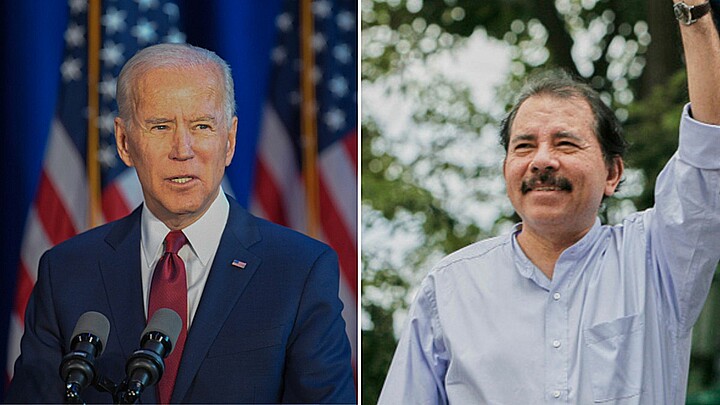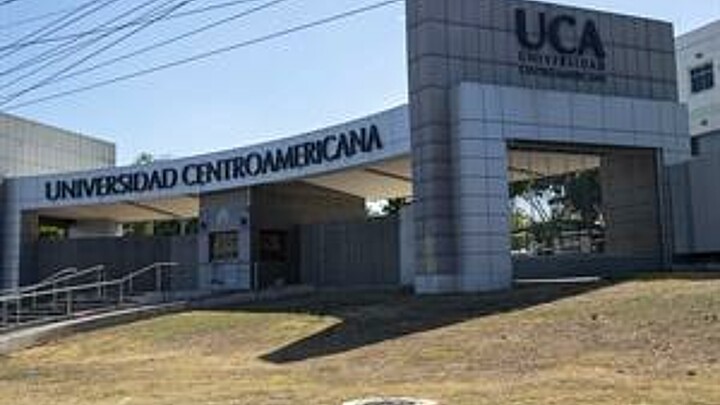Politics
Nicaraguan dictator reforms constitution to appoint wife as co-president and usurp power of local governments
Ortega, 79, has asked to reform the Constitution on 12 occasions since 2007, including a reform that allows him to be re-elected indefinitely

November 20, 2024 6:12pm
Updated: November 21, 2024 2:02pm
Nicaraguan dictator Daniel Ortega proposed extending the presidential term from five to six years, establishing the figure of “co-president” and that the executive coordinate the other powers of the state, according to the initiative for partial reform of the political constitution released this Wednesday by the National Assembly.
The constitutional reform proposal was also sent to Nicaragua’s parliament, which is dominated by the communist Sandinista National Liberation Front (FSLN), which overthrew the government in 1979 and then returned to power in 2007 after it was subsequently voted out of power.
The new constitutional reforms, which proposes to change hundreds of articles of the law, establishes that in Chapter II, Article 132, the president, as head of state, coordinates the national legislative and judicial branch, control of the electoral system as well as local regional and municipal governments.
The new law purports to be in compliance with the supreme interests of the Nicaraguan people and the spirit of the Constitution.
It also establishes, in article 133, that the presidency of the republic will have an elected co-president, a position that will now be held by Ortega’s wife, Rosario Murillo, who currently holds the title of vice president.
According to the reforms, the co-president has the function of “articulating and supervising” the actions of these governmental bodies, a measure that, according to experts, annuls any separation of powers and confirms the concentration of authority in the hands of Ortega and Murillo.
The reforms also reaffirm Ortega as the supreme leader of the Nicaraguan Armed Forces, National Police and the Ministry of the Interior.
To be co-president of the republic, one must have resided continuously in the country for six years prior to the election, unless the candidate was out of the country on an official diplomatic mission or working with international organizations.
The reforms also establish that those who have acquired another nationality or anyone who engages in a coup d'état or tries to alter the constitutional order are barred from running for the presidency.
The amendment also provides that the president and co-president will serve for a period of six years, which will be counted from the time of their inauguration, and that during that time they will enjoy immunity.
The modifications reinforce the dominance of the Sandinista regime over the country's institutions and are already generating criticism both nationally and internationally.
Since 1997, the presidential term was for a term of five years.
Ortega, 79, ends his fifth term, and fourth consecutive, on Jan. 10, 2027. Since 2014, the constitution from 2014 has allowed indefinite presidential re-election with no executive term limits.
Another notable measure is the reaffirmation of Nicaragua's historic lawsuit against the United States before the International Court of Justice for its “intervention” in the Sandinista overthrow of the Nicaraguan government in 1979.
The mention of this case seeks to revive an issue that has been recurrent in the Ortega's speech, focused on blaming foreign powers for the country's internal crises.
On Feb. 9, 2023, Ortega announced his intentions to reform the political constitution as a means of appointing his wife as and Murillo as “co-presidents of the Republic.”
“Here is comrade Rosario Murillo, co-president of the Republic. That's really how it is. She is co-president of the Republic! In the Constitution we will have to make some reforms,” said the Sandinista dictator on that occasion in the presence of Murillo, after referring to the release and expulsion to the United States of 222 Nicaraguan political prisoners, including Catholic priests.
Nicaragua’s parliament is controlled by the Sandinistas, which gives them absolute power to approve ordinary laws and partially or totally reform the Constitution.
Ortega, 79, has asked to reform the Constitution on 12 occasions since 2007, including a reform that allows him to be re-elected indefinitely.










